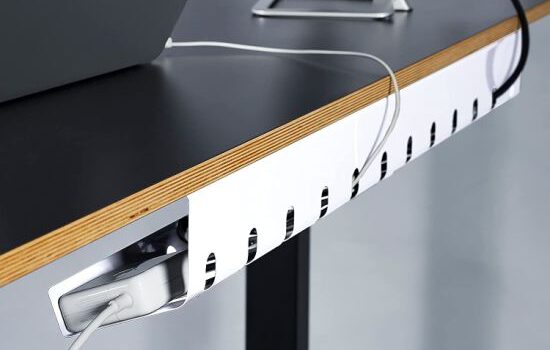Mobile applications are becoming increasingly sophisticated, feature-rich, and popular. And although Android occupies 73% of the market share, while iOS only has 26%, about 1.5 times there are more apps available in the App Store compared to Google Play. But why do companies prefer to build iPhone apps?
The reason for this trend is statistics showing that iPhone owners tend to have higher incomes and spend more on in-app purchases. That’s why today we’ll get into the development of the iOS app and compare React Native VS Swift.
Since monetization is one of the biggest goals for the development of all apps, it is not surprising that businesses decide to build iOS apps first. If you are facing challenges with an IOS development project you can- hire ios developer and turn your app idea into reality. Often, when technology experts talk about the development of an iOS app, they are talking about Swift – a programming language that allows for the creation of native iOS solutions. However, React Native also emerges from the discussion as this JavaScript framework is a well-known tool for building independent mobile applications. In this article, we will take a closer look at Swift and React Native in iOS development, discussing the pros and cons of other technologies, their key features, and their uses. Let’s compare React Native VS Swift and find out who won.
What is Swift?
Swift is an integrated programming language created by Apple specifically to improve native iOS apps. Language is only 7 years old but has achieved a lot in mobile app development companies that have previously used Objective-C in the development of their system have switched to Swift to take advantage of its flexibility, flexibility, and flexibility.
The main goal of creating Swift was to attract more developers to the development of iOS and macOS. As Objective-C is more sophisticated, Swift is much simpler and enables developers to use traditional hardware features and build compact and advanced features. Using Apple’s software capabilities allows companies to build more sophisticated solutions using the camera, GPS, Bluetooth, etc.
Benefits of Swift
Why did companies switch to Swift to build iOS apps? What makes it such a popular choice in the field of mobile development?
Speed
Apple’s official website states that Swift is 2.6 times faster than its predecessor, the Objective-C. Swift has a simple syntax and uses the LLVM tool to integrate code directly into machine code. As the name of the language suggests, building an app with Swift speeds up development processes.
Readability
The syntax of the language is simple and easy to understand, making it a highly readable technology compared to others. Developers also need a few lines of code to produce a workable app, thus reducing marketing time.
Safety
Swift mobile upgrades are less flawed as they come with safer features of the genre. This allows developers to detect potential errors in the code while typing and prevent errors from occurring. In addition, Swift automatically explains all memory access, thus protecting the system from crashes.
ABI stability
ABI Stability (Application Binary Interface) started working with the Swift 5 language version and solved a major problem. Apart from this feature, every time a new language version is introduced and developers try to incorporate it into the existing system, some features crash. ABI stability prevents this from happening and ensures that all language versions are compatible.
User experience
As simple as it is, Swift scripted apps take less time to install and require less memory storage on the device. Language is also designed for native iOS development and provides additional access to native device features. As a result, you can create applications that look and work better, and attract more users.
Xcode
What is the difference between Xcode and Swift? The latest is a programming language while the first is IDE which helps you create great applications. Using Swift for iOS app development provides access to Xcode. Collaboratively, this technology allows you to build applications for macOS, tvOS, watchOS, and iOS. You can even create Linux and Windows applications and increase your target audience.
Drawbacks of Swift
Does Swift have some really bad things to know about? How do they affect the development process and user experience?
As a new technology, Swift has a long way to go in building a strong community and developing libraries and useful packages. However, language has received a lot of attention in the mobile app development community and is considered to be the leading language development app. At the same time, if you choose to travel with Swift, you may need to spend more time finding experienced professionals, especially if we compare React Native VS Swift.
What is React Native?
React Native is a JavaScript framework created by the Facebook team to accelerate the process of developing mobile phones and building applications across all platforms. For React Native VS Swift, the latter is supported by JavaScript which is the world’s most popular language, according to Statista. With about 68% of developer support, JavaScript is far ahead of Swift in popularity and use.
Besides, building cross-platform systems is very expensive and time-consuming, and allows you to enter the market quickly. On the other hand, standalone platform applications tend to be less powerful and deliver a poorer user experience. Let’s talk about the benefits and drawbacks of React Native in more detail before investigating the major differences between React Native VS Swift.
Benefits of React Native
How easy is it to build a React Native iOS app, and what framework functions accelerate development?
Time efficiency
As mentioned, React Native is an independent operating system, which greatly reduces the development cycle and marketing time. This is achieved by writing one code and sending it to both forums with a few native tweaks.
Smaller team
Creating a single iOS and Android application allows you to have one JavaScript team for employees instead of having two native development teams. You will also avoid the timeline conflicts that often occur when you have two teams developing two applications at the same time. Lastly, having one team do all the work prevents problems that arise when one of the developers calls it sick as his team colleagues cannot easily handle it.
Rich library support
According to nmpJS, React Native has nearly 33,000 libraries and packages, while the same search engine on the Swift website shows only 3,800 packages. Indeed, the number alone does not guarantee the quality of a language or a framework, however, it proves the community’s commitment and enthusiasm to contribute. In any technology, this commitment is essential to continuous improvement.
High grade of automation
The software development process not only writes code but extends to testing, extraction, bug fixes, etc. Developers prefer to perform these tasks automatically to speed up the process and avoid routine. React Native allows you to provide common services to third-party services such as Bitrise, AppCenter, Amplify, and others.
Gateway to nativeness
While you may not be able to build a 100% native iPhone app for iOS React Native, you can create specific parts of the app using this platform technology and save costs. In other words, you can build important parts using traditional tools and minimal functionality that affects features with React Native. This way, you can bring a less expensive traditional app in no time.
Drawbacks of React Native
Performance
Cross-platform solutions often lose traditional applications when it comes to performance and speed. React Native apps take up a lot of space on the device and average create a very bad user experience for your customers. However, this issue is only useful if you are talking about high-end flexible products like sports.
Longer testing process
Although creating applications with React Native speeds up the process due to a single source code, the testing process takes longer compared to React Native VS Swift. React Native applications require more time and accuracy when it comes to user testing, as errors may appear in both forums.
React Native VS Swift for iOS: Features, Industries, and Types of Apps
Knowing the weaknesses and strengths of mobile and multi-platform development and the development of Swift and React Native iOS, let’s see what technology is right for your project.
React Native VS Swift: Comparison
User Interface
React Native uses traditional components and APIs and allows for the creation of similar applications that look and appear to be very close to the native. Swift is specially designed for native iOS development that ensures the highest UI features of iOS devices.
Stability
Although React Native can bring a decent native as a UI, it cannot achieve the same amount of stability compared to Swift. Using native development language, you can use device features and build a stable and rich feature-rich app.
Performance
Here again, Swift leads, as traditional development almost always offers higher performance than stadium development. Especially when it comes to dynamic and innovative apps, Swift is ahead of the competition.
Coding speed
Coding speed depends on your goals. If you are developing an iOS app only, then Swift is your choice. However, if you would like to launch your solution on both iOS and Android, React Native will ensure faster results.
Talent pool
Although it is difficult to compare these as React Native is the framework and Swift is the language, one can still conclude that React Native has a very large community. But Swift has proven to be very popular and useful among the mobile app development community and has been gaining more attention over time.
Development costs
Speed developer ratings on average are higher than JavaScript coding ratings. While we will discuss costs in detail in the next section, the average developer numbers look like this:
The difference is negligible, however, the React Native development cycle is usually shorter as it delivers two applications with one code, making it a cheaper option altogether.
Learning curve
React Native is a framework that supports JavaScript – the most widely used language. As mentioned, 68% of developers use JS for coding, which means that these developers can easily adapt to React Native in their work. Swift, on the other hand, is very easy to learn, but still needs a learning curve.
Documentation
As both tools are developed by reputable and experienced professionals – Facebook and Apple, both React Native and Swift have excellent documentation.
When Should You Choose Swift for Native App Development?
Businesses prefer Swift when building applications that require high memory management and outstanding UI. Apart from that, Swift is a great alternative to traditional iOS development that will also be extended to other Apple products such as laptops, tablets, TVs, and accessories.
When Should You Choose React Native for iOS?
Companies prefer React Native for iOS development when building an MVP or prototype because of its simplicity and fast coding speed. The React Native app can be re-distributed to both iOS and Android, which makes it a great choice for companies that are under time pressure and need an affordable solution as soon as possible. Finally, React Native developers can create a simple React Native iPhone app that does not use device features, such as the camera and Bluetooth.
Conclusion
Your choice between React Native VS Swift depends on many factors, including the type of application, project length, budget, and personal preferences. For example, if you are a developer for employees who know JavaScript and cannot easily create an application with React Native, Swift selection should be excused. But if you are looking to build a flexible, efficient application with complex photo effects, you will not make a mistake with Swift.
If you would like to know more about technology or how to make an app with Swift or React Native, contact DOIT Software. Our experts will help you get the React Native iOS vs Android app development, enlighten you about the benefits of Swift, and guide you to the appropriate technology for your next project. Alternatively, our experts will take you through the adoption phase and guide you when it comes to other languages and frameworks, and help you decide between React Native VS Swift vs Kotlin, React Native vs Flutter, etc.


















